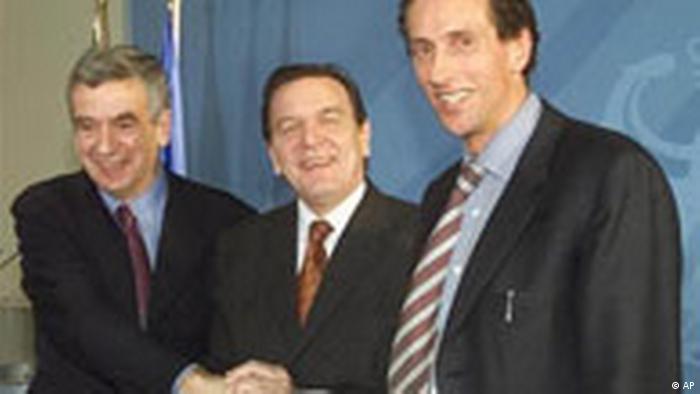With a ceremony in Berlin, the 20 has been celebrated anniversary of the office of the Federal government Commissioner for culture and the media. Among the participants of the previous incumbent.

The current state Minister for Culture Monika Grütters (CDU)
At the ceremony in the Humboldt Forum in the Berlin Palace, the Federal Chancellor, Angela Merkel, the previous incumbent, Monika Grütters, Bernd Neumann, Christina Weiss, Julian Nida-Rümelin, and Michael Naumann, as well as 600 high-ranking guests took part. The ceremony was the first major public event in the new Foyer of the Humboldt forum, due to be officially the end of 2019 will be opened. The office of the Federal government Commissioner for culture and media (BKM) was created in 1998 by then-Chancellor Gerhard Schröder and activities that had previously fallen within the remit of different ministries.
The first speaker of the Evening was the acting state Minister of Culture Monika Grütters. They drew Parallels between the Humboldt-Forum, Germany’s “largest cultural construction site”, and the Federal cultural policy. The venue stands as a perfect example for a Forum of understanding and a Museum of world cultures, the warm reflection of one’s own position as well as to the change of perspective.
“The Own in the exchange with the other to define”
“We are not in the heart of the German capital ourselves in the center, but define your Own in the exchange with the other reveals the self-understanding of the cultural nation of Germany in the 21st century. Century,” says grütter. The show, that Germany had learned, with deep chasms and upheavals in history.

Ex-Chancellor Gerhard Schröder, (M.) with the first two of state for Culture Ministers, Michael Naumann (1998-2001, l.) and Julian Nida-Rümelin (2001-2002)
In relation to the prior to the opening sparked controversy to the cross on the dome of the forum Grütters emphasized the Christian Tradition of Germany. The country recommend today as a “Partner in the world, as the driving force of the understanding of the people, a Dialogue of the cultures of the world under the Symbol of Christianity, the cross of the Berlin castle,” said the state Minister of Culture. Because of Germany’s attitude of openness, of freedom, mercy, and solidarity have their roots and, in particular, in the Christian image of man.
Culture as an antidote to populist simplicity
Grütters also took on the growing populism in Germany: “Cultural diversity can also be bulky, provocative and irritating of the items in freedom can unfold, may, and must, therefore, be the Best at what we can put of populist simplicity.” Her speech closed the CDU politician with a hope: “We remain defenders of the diversity and the guardians of the freedom for culture and the media in the hope that it will be in the Germany of the 21st century. Century never so far may come, for such basic democratic conviction, cult, and must in order for the exception status of a claim.”
The second speaker of the Evening was the Journalist and author Volker Weidermann. Examples of Kurt Eisner, Günter Grass, Willy Brandt and Wolf Biermann, he pleaded for positive, artistic visions of the future.
“There is much turmoil in this country, and malice, resentment and fear, Aggression and hatred, longing in the dark regions of the past and a General unwillingness to listen to each other,” said Weidermann. It is also “the narrative, pioneering, rousing lacking sometimes, unifying, literary Moment in politics.” You need opposition artists and literature, the wish to interfere, have the strength to, and to tell the will of the other possibilities and worlds.
Curiosity belong to us self-consciousness
As the last speaker of the Evening, German Chancellor Angela Merkel spoke. She said, Germany, as well as historically established European nation of culture. Correspondingly high is the importance of the Federal government of the culture and media policy agree.

German Chancellor Angela Merkel (CDU) speaks at the ceremony in the Humboldt Forum
In her speech, the Chancellor also spoke against foreclosure, and for cultural enrichment: “curiosity and other cultures, and the awareness of the own culture are directly linked. The better we know our own cultural backgrounds, the better we can understand the cultures of other countries and peoples, commonalities, differences, understand, and the better way to a peaceful and prosperous Coexistence in our world.”
In addition, Merkel stressed the importance of coming to terms with history and underlined the role of the media. A special tribute was paid to the German wave.
A special recognition of the German wave
“I would like to expressly acknowledge that our media institutions, as an Ambassador of open and free interaction in the world,” said Merkel. Out she wanted to raise in this context, the Deutsche Welle. Bar essential work in the countries in which the free access to independent media was often very difficult.
Merkel went on to speak about the Situation of the freedom of art, as well as the financial Situation of artists. Artists and Creative people should be able to make a living from their work. In addition, it is unacceptable that women are still less deserved than their male colleagues.
The event was the culmination of Max Raabe and his Palast Orchester. They took the audience on a journey back in time to the roaring twenties – the heyday of the German art and culture.